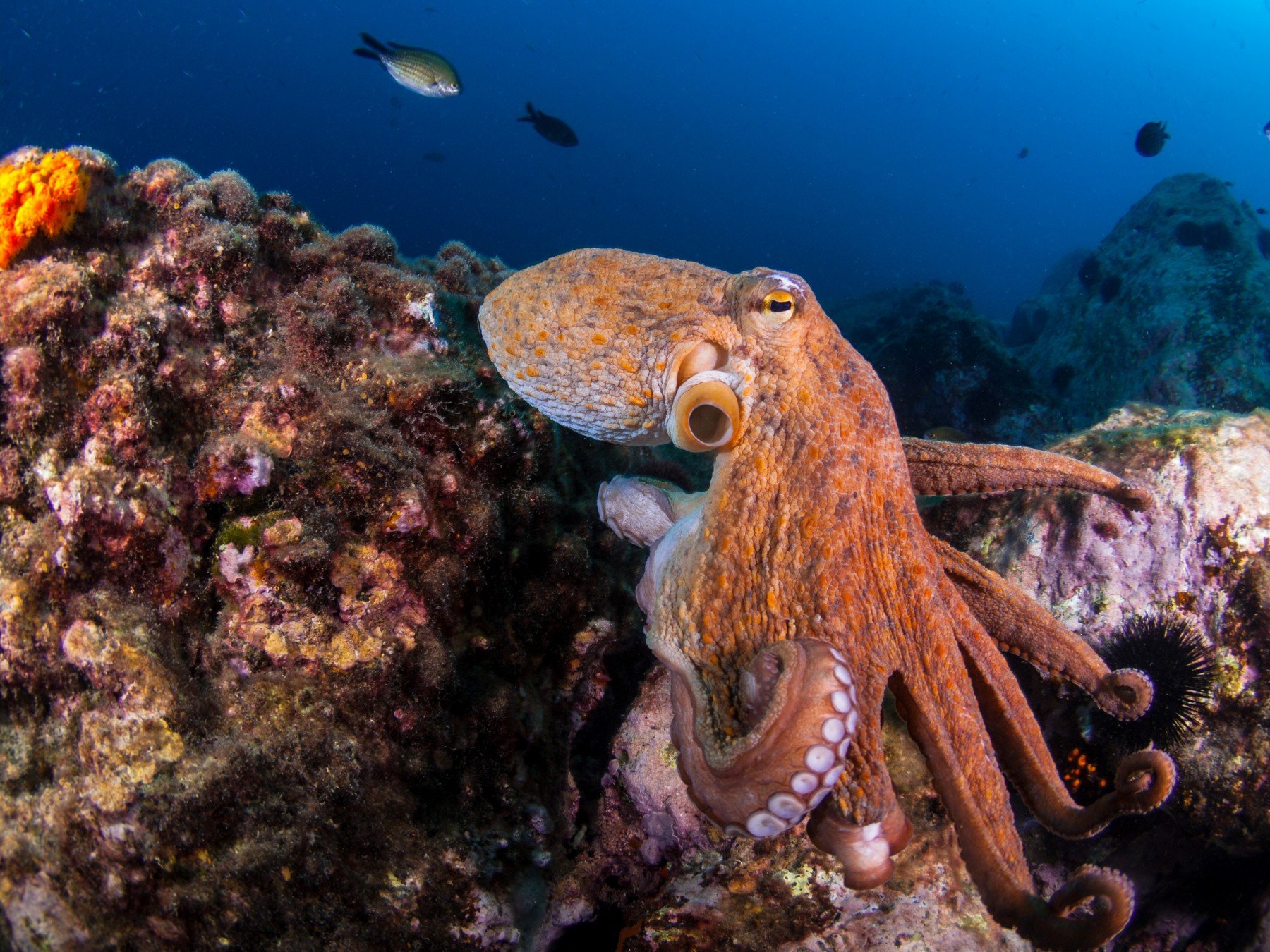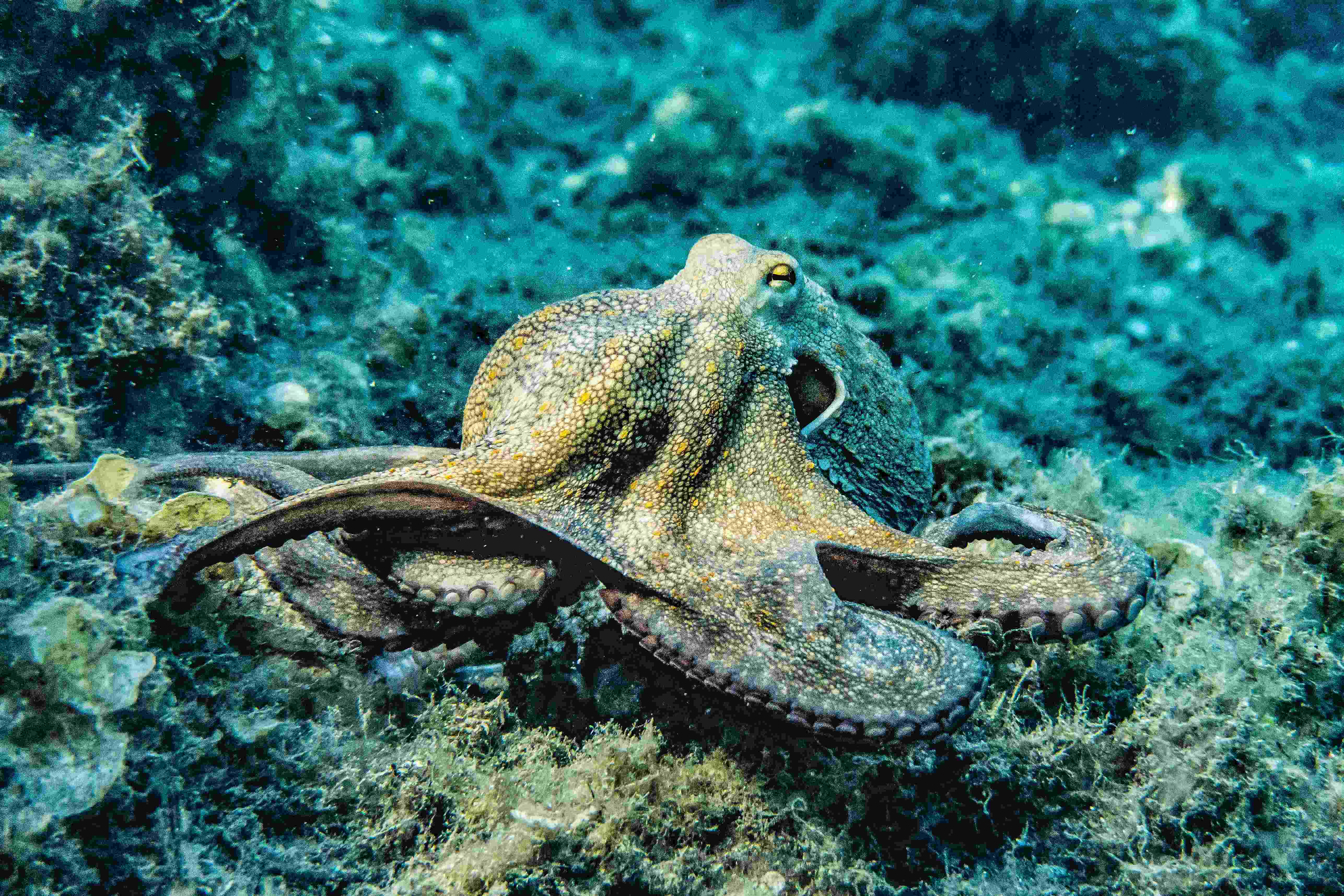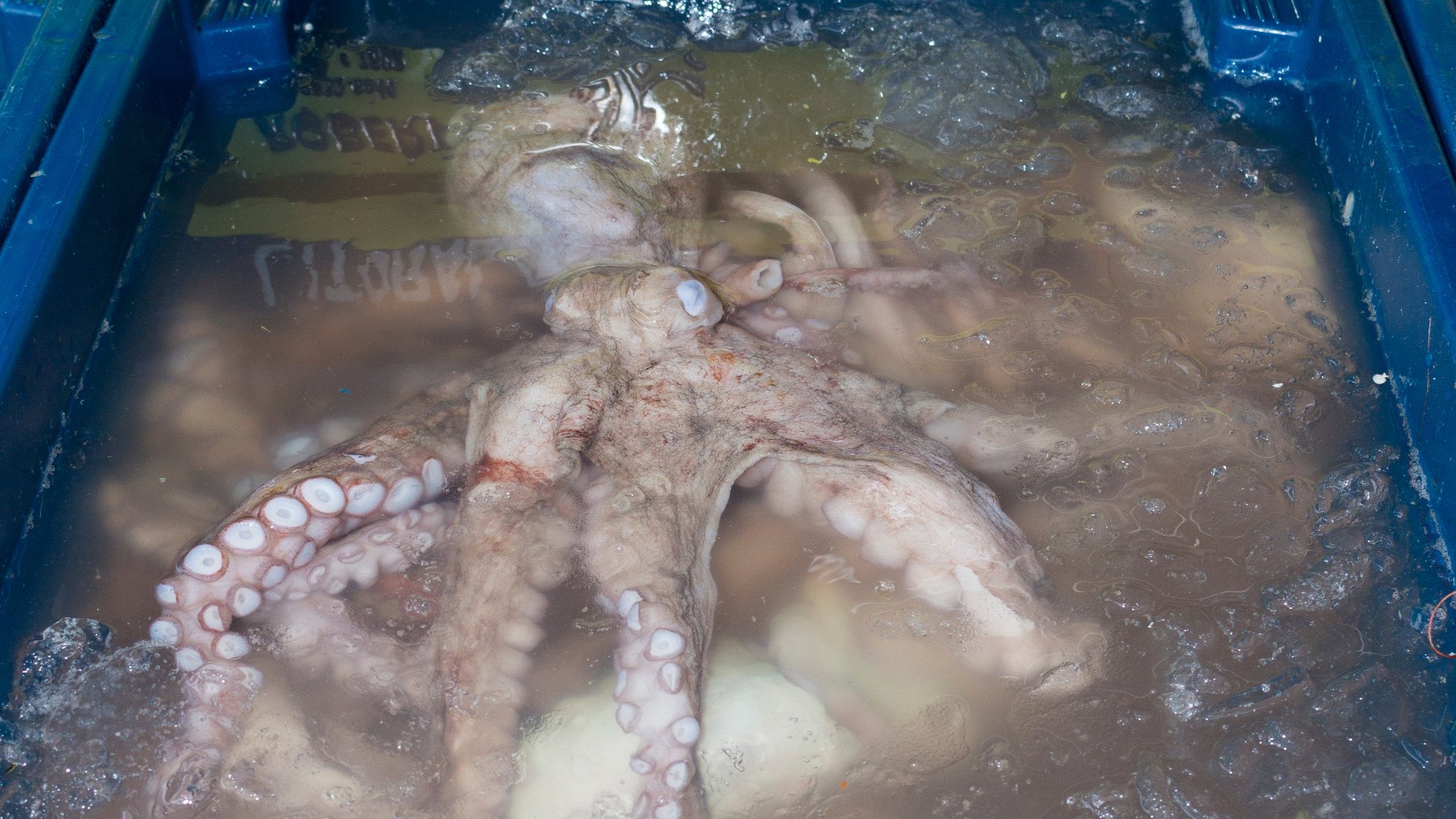
Octopuses, or octopi, are incredible creatures that live in the world’s oceans. These facts will help you understand them better.
If you’ve seen My Octopus Teacher or any documentary about these animals, you’ll know that octopuses are sensitive, intelligent beings deserving of protection.
Here are nine facts you should know about octopuses.
1. Octopuses can navigate mazes, solve problems, remember solutions, and take things apart for fun!
Octopuses can plan ahead and complete complex tasks. They’re also adept at getting themselves in and out of containers, like broken bottles on the seafloor, jars, and other small containers. One octopus at the University of Otago in New Zealand would turn off the lights by squirting water at the bulbs and short-circuiting the power supply. Because this became so expensive to repair, the octopus was eventually released back into the ocean.
2. Octopuses have the largest brain-to-body ratio of any invertebrate.
While not larger than mammals, octopuses’ brains are larger than those of many vertebrates! They have approximately 500 million neurons, about the same amount as a dog’s, and two-thirds of them are in their arms! According to the Natural History Museum, octopuses are seriously clever, and smarter animals tend to have a higher brain-to-body ratio.

3. Octopuses remember individual people.
An octopus at the University of Otago in New Zealand (the same one where octopuses would turn off the lights) once took a dislike to one of the staff and would squirt a jet of water at her every time she walked by the tank. According to Scientific American, the octopus would squirt a half-gallon jet of water down the back of her neck.
4. Octopuses are aware of their captivity.
According to Philosopher Stefan Linquist of the University of Guelph in Ontario, octopuses know they’re in a tank or enclosure and that humans are on the outside of it. “All of their behaviors are affected by their awareness of captivity,” Linquist told Scientific American. One of the octopuses he was studying would deliberately plug outflow valves by poking in their arms to increase the water level, flooding the entire lab.
5. Male octopuses lack external genitalia.
Instead, male octopuses use a modified arm—called a hectocotylus—to pass sperm to the female octopus, and the appearance varies between octopus species. Some species, such as paper nautiluses, leave their sexual appendage behind as they jet away. Once they’ve mated, most male octopuses die in a few months.
6. Octopuses are older than dinosaurs.
The oldest known fossil of an octopus ancestor dates back to 330 million years ago and was only discovered in 2022! The fossil showed ten limbs, whereas modern octopuses have eight, and was found in Montana’s Bear Gulch limestone formation. The second-oldest fossil found was a soft-bodied invertebrate approximately 296 million years old.

7. Aristotle claimed octopuses were stupid.
We hope Taylor Swift doesn’t take Aristotle too literally here, as the Greek philosopher claimed octopuses were stupid. Writing in the History of Animals in 350 BCE, he stated:
“The octopus is a stupid creature, for it will approach a man’s hand if it be lowered in the water; but it is neat and thrifty in its habits: that is, it lays up stores in its nest, and, after eating up all that is eatable, it ejects the shells and sheaths of crabs and shellfish, and the skeletons of little fishes.”
To us, this just sounds like these intelligent animals are curious about the world around them!
8. Octopuses are cruelly slaughtered for food.
Octopuses are typically submerged in a freezing “ice slurry” of 26 degrees Fahrenheit, causing an incredibly slow and stressful death. A study on this method found that when an octopus’s body drops below 30 degrees, their muscles revert to a state that resembles unconsciousness or death—but they are very much still alive, leading to possibly severe pain. Some wild catch fisheries have also been known to club octopuses in the head.

9. Octopuses belong in the ocean, not in tanks or on factory farms.
As we’ve learned in this blog, octopuses are keenly aware of the fact they’re in captivity. These animals suffer immensely in captivity, such as zoos and aquariums, but companies are also trying to open octopus factory farms. Octopus farming is so immensely cruel that states are preemptively banning the process because there’s simply no humane way to keep these animals in captivity.
Washington State has introduced and passed legislation banning octopus farms, with Washington Governor Jay Inslee signing the bill into law this February, and both California and Hawai’i have introduced similar legislation.
Want to help octopuses and other wild animals? Join our community today and receive the latest news, petitions, appeals, and campaign successes from World Animal Protection!